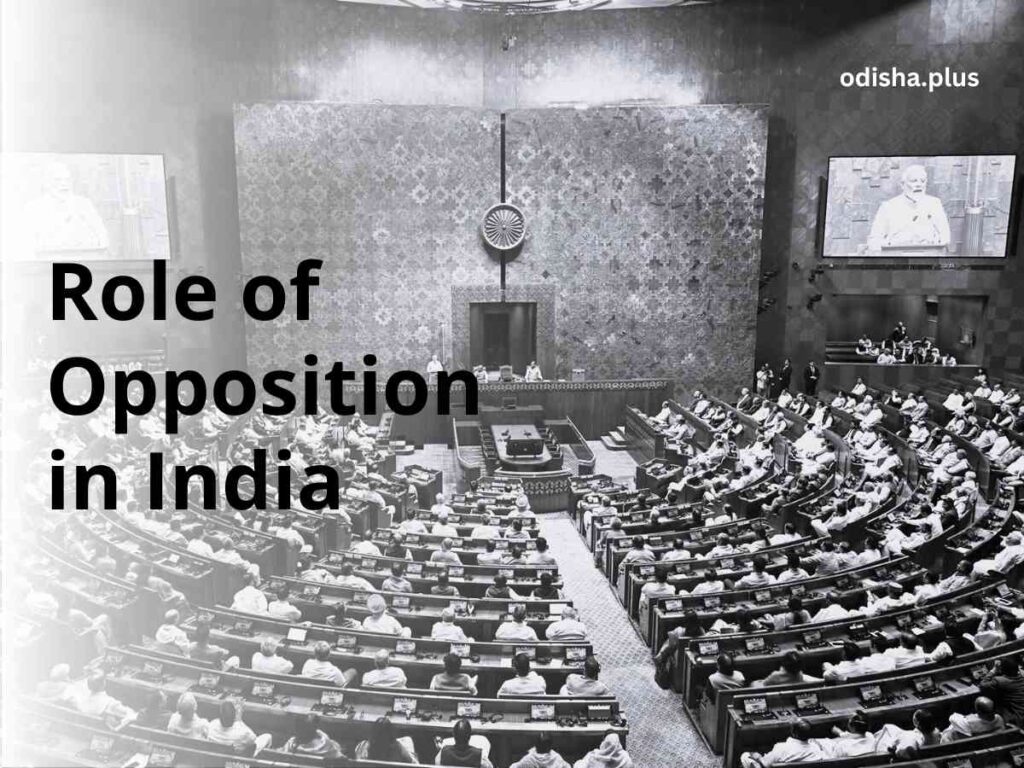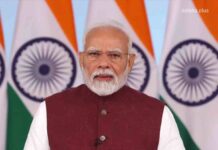In a democracy, the opposition is not only tolerated as constitutional but must be maintained because it is indispensable
Tejeswar Patnaik

A thriving democracy, like India’s, relies on the presence of a strong and active opposition. The opposition must hold the government accountable through constructive criticism, ensuring that policies are rigorously debated and refined. Without this crucial balance, the people themselves must question the opposition’s relevance. At its core, the opposition exists to protect the interests of the public, challenging government decisions in the floors of the Parliament and on broader public platforms.
India’s political history, especially during the Congress Party’s dominance until the early 1970s, saw opposition leaders rise to the occasion, engaging in fierce debates that shaped the course of governance. These moments not only sparked friction but laid the foundation for a healthier balance of power, which is the cornerstone of any true democracy. Walter Lippmann, a famous political commentator and writer, aptly defined the role of the opposition leader. According to him, “In a democracy, the opposition is not only tolerated as constitutional but must be maintained because it is indispensable.”
LOP Role
His statements emphasize that the opposition is not a burden to the ruling party, but rather an important component of governance that ensures transparency, accountability and responsiveness to public interests. Given this, it is worthwhile to discuss the role of the Leader of the Opposition (LOP) in our democracy. The leader of the opposition is identified as the leader of the single largest opposition party with at least one-tenth of the House’s seats and plays an important role in legislative procedures. This position, in a fully functioning democracy, should be more than ceremonial; it should engage with the ruling party constructively but strongly, ensuring that policies benefit the common interest.
The Leader of the Opposition is a member of several high-powered committees responsible for the selection of key posts, such as the Director of the CBI, the Central Vigilance Commissioner, the Chief Information Commissioner and the Chief Election Commissioner of India, other election commissioners, and the Lokpal. These appointments impact governance. As a result, the opposition’s participation in these selections is to ensure that these bodies remain independent and credible, as they are critical to maintaining the rule of law.
In the Westminster model of the United Kingdom, the Leader of the Opposition is frequently referred to as the “Prime Minister in Waiting,” and they establish a shadow cabinet to oversee various government ministries and propose alternative policies. This strategy increases executive accountability because the government knows its policies are constantly reviewed by an alternative team capable of governing.
In India, the status of the Leader of the Opposition is equivalent to that of a cabinet minister, with certain perquisites and privileges. Although not a constitutional post, it is a statutory position. The term “Leader of the Opposition” was first mentioned by Parliament in the Salary and Allowances of Leaders of Opposition in Parliament Act, 1977, which was later amended in 2002. The opposition must not merely react to government policies but should proactively shape discourse by offering appropriate alternatives and policy visions.
Old Stalwarts
In recent years, our Parliament and state legislatures—citadels of democracy—have witnessed a gradual decline in the quality of debates. In the past, stalwarts like Jagjivan Ram, Atal Bihari Vajpayee and P.V. Narasimha Rao effectively performed their roles as Leaders of the Opposition. Their leadership was marked by a balance of strong opposition while maintaining a level of decorum and respect for parliamentary procedures.
However, the past decade has seen frequent disruptions, which have affected parliamentary proceedings. With an absolute majority in the 16th and 17th Lok Sabha, some important bills related to farmers and the scrapping of Article 370, were alleged to have been passed by the ruling party without much scrutiny and adequate debates by the opposition.
This trend of bypassing detailed deliberations raises concerns about the health of India’s democracy. Robust parliamentary debate is not just about finding fault but about shaping policies that reflect the collective wisdom of diverse voices.
Furthermore, a fragile opposition might result in unfavorable outcomes, such as the ruling party gaining a monopoly. Not to be overlooked is the fact that a sizable portion of voters have mandated the opposition parties as well.
INDI Alliance
Fragmented opposition parties weaken both their political influence and the democratic process. Democracy flourishes when a robust government and a strong opposition act as counterbalances. The emergence of the INDI alliance, which holds 234 seats and the appointment of a Leader of the Opposition—a position vacant for a decade—have notably changed the dynamics in the 18th Lok Sabha.
While the ruling NDA government commands 293 seats, it now functions under the pressure of coalition politics and seeks consensus. This was demonstrated when opposition parties raised strong objections, leading to the referral of the Waqf Amendment Bill 2024 to a joint parliamentary committee (JPC) for further examination after its introduction in Lok Sabha. This instance illustrates how a unified and assertive opposition can exert pressure to influence legislation, even against a dominant majority.
Currently, the opposition appears more cohesive and determined to hold the government accountable. However, they still face significant challenges, such as limited speaking time, frequent dismissal of their motions and inadequate media coverage, which hinder their ability to express their concerns effectively.
A responsible opposition must rise above narrow interests and work towards national unity and progress, holding the government accountable for acts of omission and commissions. The Leader of the Opposition holds an enormous responsibility in this regard and must effectively articulate their party’s vision for India on the economy and social issues, acting as a “shadow prime minister” by providing alternative policy proposals.
Nonetheless, it is the prime responsibility of the ruling NDA alliance to foster cordial relations with the opposition while tolerating dissent and constructive criticism for the smooth functioning of both Houses. They need to strive for consensus and consultation on bills tabled by the government.
Equal Responsibility
The role of the opposition in a democracy is hence indispensable. A government without a strong, effective opposition is vulnerable to unchecked power, which leads to autocratic tendencies of the ruling alliance. The opposition should ensure that the government remains focused on the welfare of all citizens and that all policies are scrutinized and examined critically. Both the ruling party and the opposition must realize that they are ultimately accountable and answerable to the people.
The health of our democracy ultimately depends on how well they balance power with responsibility.
(The author is a former banker and columnist. Views are personal)


























